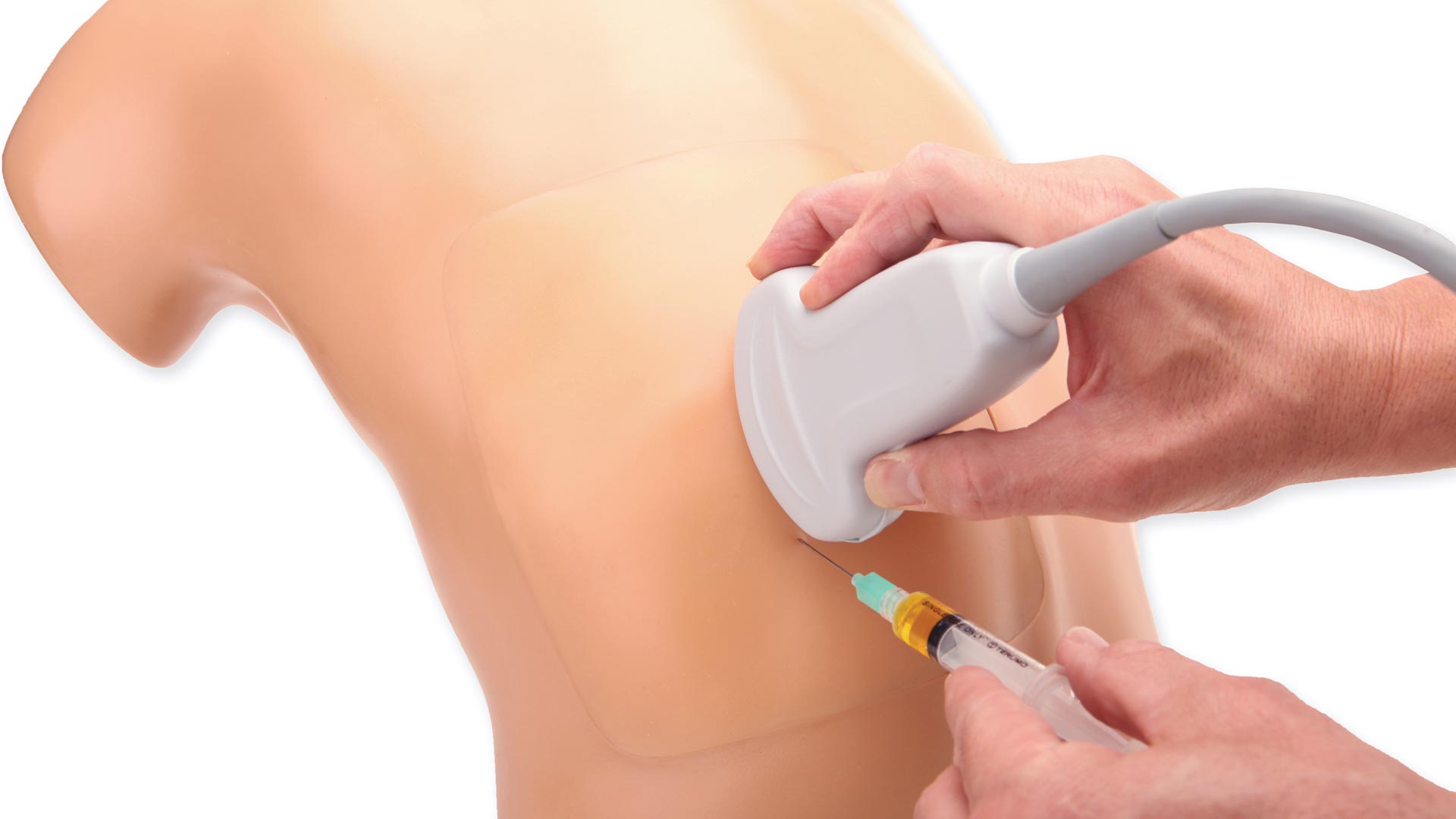

$9,445.78
Specialized ultrasound-guided thoracentesis training for pleural effusion management
Mid-scapular approach with complete thoracic anatomy
Self-healing tissue with positive fluid flow feedback
Realistic pleural effusions with easy refill capability
Universal ultrasound compatibility with any system
Train on realistic chest wall tissue, 6th-9th ribs and intercostal spaces, pleural cavity with lung and atelectatic lung, diaphragm, and superior spleen for comprehensive anatomical recognition.
Immediate confirmation when pleural effusions are accurately accessed, providing learners with realistic procedural validation and confidence building.
Blue Phantom’s patented ultra-durable tissue withstands repeated punctures with 18-21 gauge needles, dramatically reducing replacement costs and maintenance requirements.
Simulated tissue matches acoustic characteristics of real human tissue, delivering clinical-quality imaging without system adjustments or unrealistic settings.
Easy refill using quick-fill luer lock ports or connect to I.V. reservoir for continuous fluid delivery during extended training sessions.
Learn to identify and avoid critical structures including spleen, diaphragm, and lung tissue for safe procedural technique development.
Performs optimally with any ultrasound imaging system configured with appropriate thoracentesis transducers, eliminating equipment limitations.
Master ultrasound system controls, transducer positioning, anatomical recognition, fluid pocket targeting, and full procedural execution in one comprehensive trainer.
Anatomy:
Dimensions:
Included Accessories:
Standard Coverage: 1-Year Manufacturer’s Warranty included
Usage Requirements: Only use with Blue Phantom ultrasound refill fluid and 18-21 gauge, sharp, unbent needles for optimal performance and warranty coverage.
Purpose-built for mastering ultrasound-guided thoracentesis procedures using the mid-scapular approach. Features complete thoracic anatomy from upper buttocks to lower neck with realistic pleural effusions and immediate fluid flow feedback. Trains clinicians in needle and catheter placement for diagnostic and therapeutic thoracentesis across emergency medicine, critical care, surgery, and pulmonology specialties. Includes avoidance training for spleen, diaphragm, and lung structures.